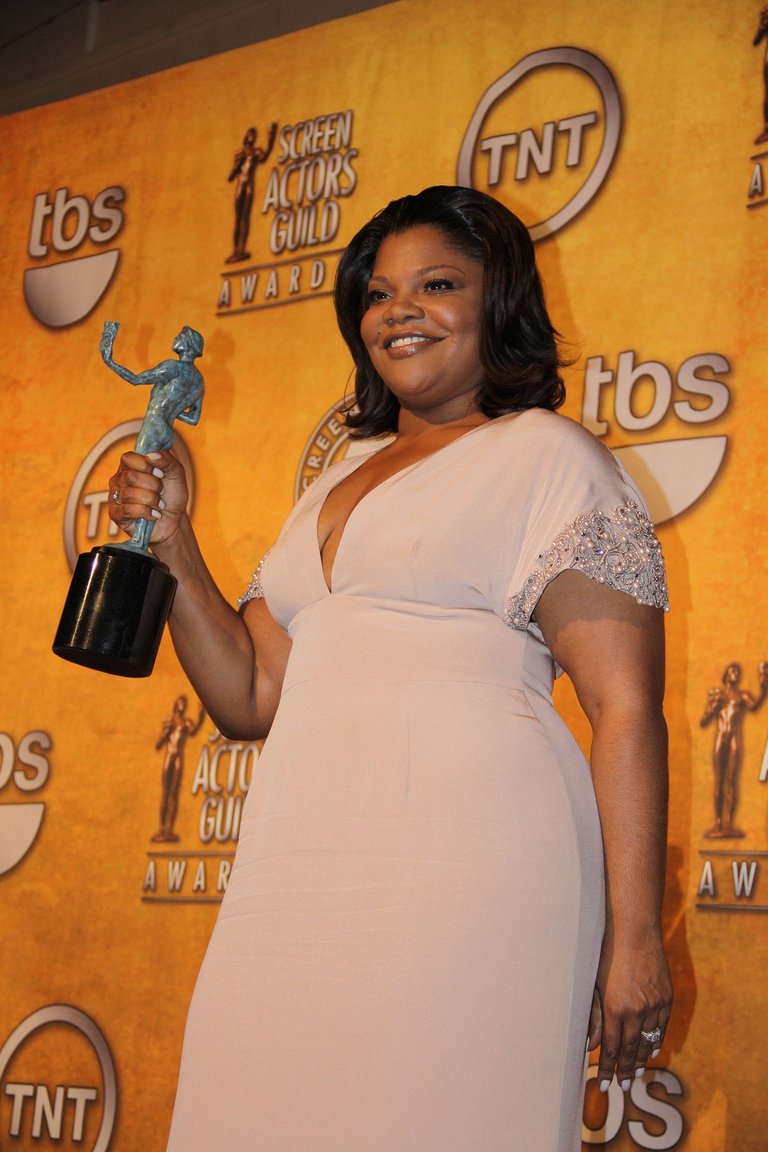Devaluing Black Women - What Mo'Nique and Amara La Negra teach us about self-worth and high cultural esteem
Poor reporting. This is immediately what I thought when I watched The Breakfast Club Interview with Amara La Negra. When you have the platform to be on the right side of history, speak up and stand for what is right, what will you decide to do with it? Will you shun it because it wasn’t presented by the person you love? Will you dismiss it as a message that has nothing to do with your personal life? We should all ask these questions, when we analyze the stories of women such as Mo'Nique and Amara La Negra.
The major issue Amara La Negra, the current star of Love and Hip Hop Miami, tried to address on the Breakfast Club - colorism. She spoke from her experience of being mistreated and overlooked within her own community, the Latin community, due to her darker skin color. Mo'Nique, the award winning comedian, visited Sway in the Morning, promoting her new stand up comedy tour and to address her $500,000 Netflix offer. The interviews were of different matters, agreed, but the preparation and awareness of thought executed by the interviewers were starkly different and is worth discussing. The responsibility of reporters to report in a responsible and respectable fashion is vital.

A dissolution of Amara La Negra’s experience as a Afro-Latina and the minimization of Mo'Nique’s accolades as a Black female entertainer who has contributed to the fabric of the entertainment field is worth discussing. I saw two themes emerge this week when we, as Black women, uphold our self-worth, monetize our worth and ask our communities to stand with us. Malcolm X once said, “The most disrespected person in America, is the Black woman.” Unfortunately, because some may argue Mo'Nique is a “rich”, “irrelevant” and a perceived “troublemaker” she needs to “humble herself” as an individual and she is undeserving of millions of dollars like the likes of Amy Schumer, Dave Chappelle and Chris Rock. I would pose the question, How many countless others have participated in the pay disparity system? How have you been overlooked or dismissed in your own life?
I read comments stating Mo'Nique isn’t relevant today. I would add, this is possible because she has not been visible through large media outlets. I would add she has been deemed invisible coded in the language of “irrelevance.” If this is true, can we claim her contribution to entertainment should also be removed from the discussion? I beg to differ. Merit matters.
As for Amara, her claim of mistreatment because of her skin color labels her with words such as: “angry” “self-indulged” “ungrateful” “complainer” as some people insinuated i.e. castmate “Vega” and “Young Hollywood.” Yes, we know Love & Hip Hop is a scripted television show however, can we not see the truth in finding it shocking that the oppressor at times has a face that looks just like you?
By no means am I, trying to conflate the two women, Mo'Nique and Amara La Negra as the same person. Merely, this piece is an attempt to shed light on how, two women, with seperate accomplishments, backgrounds and identities, in their own way, with their own different experiences, are being treated unfairly due to racial and gender bias in the context of our society we deem, America. Their stories are different but, the similarities are clear. Black women’s experiences are oftentimes not trusted and their worth devalued. If you have the talent and work hard, when will it be decided, and by whom, your commitment has proven to be enough?
Amara La Negra is the current star of Love & Hip Hop Miami, a VH1 television empire created by Monai Scott. She is now stepping into the American music industry, having been a successful Latin singer and performer in her home country of Dominican Republic. Previously having worked on popular Latin shows such as Sabado Gigante. Amara La Negra is from the Dominican Republic who acknowledges her African roots. Today, she is entering TV screens every Monday night. As I watched the Breakfast Club interview, and read comments on media outlets, I was surprised to find, Why is Amara La Negra’s experience as a Afro-Latina being diminished by those who look like her and self-identify within her community? Can they not see a piece of her experience within themselves? I asked myself that question not once, but twice this week.
This question directed me to Mo'Nique Angela Hicks, professionally known as the American Comedian Mo'Nique. Mo'Nique last week made a short video stating she was offered $500,000 by Netflix, the popular streaming service, to commit to a comedy special. She and her representatives questioned the numbers and inquisitively asked based on previous comedians such as Amy Schumer who was offered 11 Million, Dave Chappelle who was offered 20 million, and Chris Rock who was offered 20 million dollars. How was Mo'Nique, a award winning comedian, being offered a half of million dollars given her accolades and accomplishments and overall contribution to the culture? I found this a valid question. I dug deeper. What I found was shocking.

Resume Vs. Relevance
The oppressed deny oppression. Even when it is blatantly staring them in the face.
Denial, is a symptom of oppression. Difficult to face and hard to swallow.
Until your daughter, sister, niece, mother, or aunt come home and speak on the injustices they face in the workplace and in their communities everyday, their cries will fall on deaf ears. Even still, some will never accept the subtleties of violation. Her fight is all of our fight. You cannot pick and choose what injustice you will stand for.
In the Sway in the Morning interview Mo'Nique reiterated her question - Why am I (Mo'Nique) someone deemed a “legend” stated by Netflix, not getting at minimum, millions if in the past (Amy Schumer, Dave Chappelle and Chris Rock who are also deemed “legends”)? In addition, Why am I offered a half a million dollars If I (Mo'Nique) have just as many, if not more, awards than Amy Schumer, Dave Chappelle and Chris Rock? As she stated on Sway in the Morning, “If I accepted that offer what would it do for other Black women after me.” According to Mo'Nique, Netflix claims they do not award based on resume. However, when questioned by Mo'Nique, continued to list Amy Schumer's accomplishments.
Why would anyone, especially Black people and women, who are constantly de-valued through pay, disagree that Mo'Nique deserves more than $500,000? Two arguments emerged: 1) She is not relevant. 2) monetary privilege.
Regardless of her Oscar award, BAFTA award, Golden Globe, and being one of the first Black women to star in her own primetime show, I read comment after comment stating some form of, she is washed up, sit down, take the money or be quiet. In addition, there were more comments stating in some form, she is rich, stop complaining you don’t understand the struggles of the poor.
Pitting meritocracy (resume) against relevance, (who is visible), depends on 1) the beholder (subjectivity) and 2) relativity (who else is out there in the profession being promoted).
I argue meritocracy against relevance and vice versa, is a baseless claim. The issue at hand is mistreatment of women, Black women, through pay inequity and the dismissiveness of their stories. This is why organizations such as the National Organization for Women, promote eradicating Black Women’s Equal Pay Day. According to 2017 data administered by the National Organization for Women, “On average, Black/African-American women are paid 63% of the dollar men are paid.”
There will always be someone who holds one comedian to a higher esteem than another. This is a matter of subjectivity. By definition, Subjectivity, “the quality of being based on or influenced by personal feelings, tastes, or opinions.” is the base of the relevance argument which cannot hold up when you list accomplishments such as a resume (meritocracy). Relevance is relative, and is rooted in the context of perspective (from whose point of view) and perception (how one views the world).
When you remove “personal feelings and tastes” out of the argument, all that is left are facts. The fact is clear, Mo'Nique, and countless other women of color, are offered the short end of the stick and are expected to sit docile and take the bargain regardless of their merit.
It does not matter if you like or dislike Mo'Nique, the lesson here is their is a message to be received and unfortunately, some people dismissed Mo'Nique, the messenger. Since Mo'Nique has spoken, notable entertainers Wanda Sykes mentioned she was offered “less than a half a million dollars, but found a new home.” Jada Pinkett-Smith spoke out in support of the issues Mo'Nique has brought up which is - pay inequity. You don’t have to like the messenger, but make sure you understand what the message is and do the work to learn about the issue.
Great article. Your incite offers readers an example of pay inequity as it exists for Black women in Hollywood.
Looking forward to reading more content by you. You've got a subscriber.
Thank you! Hope this continues to shed light on the issue. Will follow you!